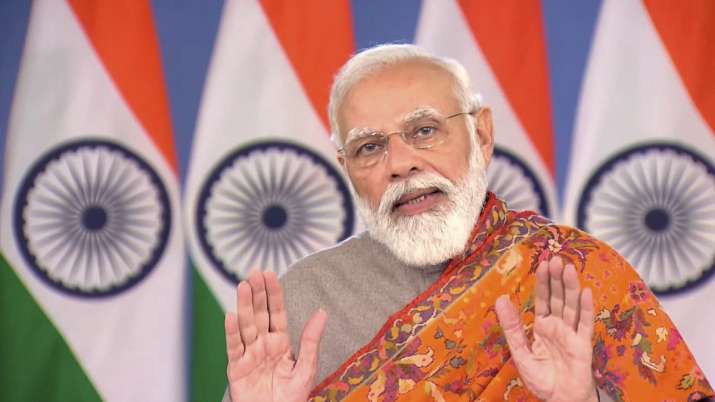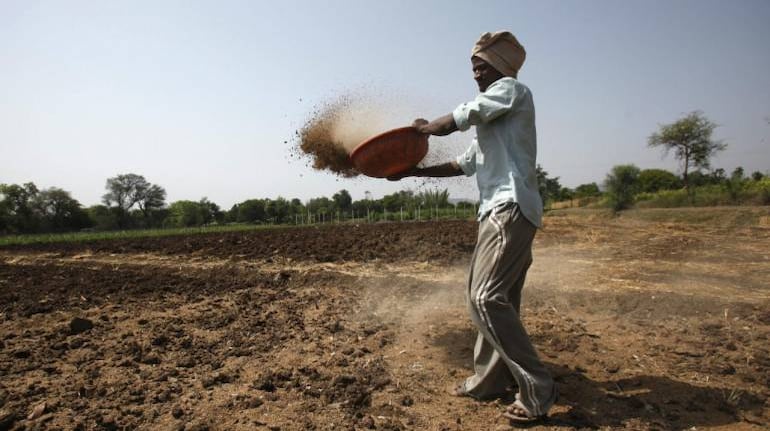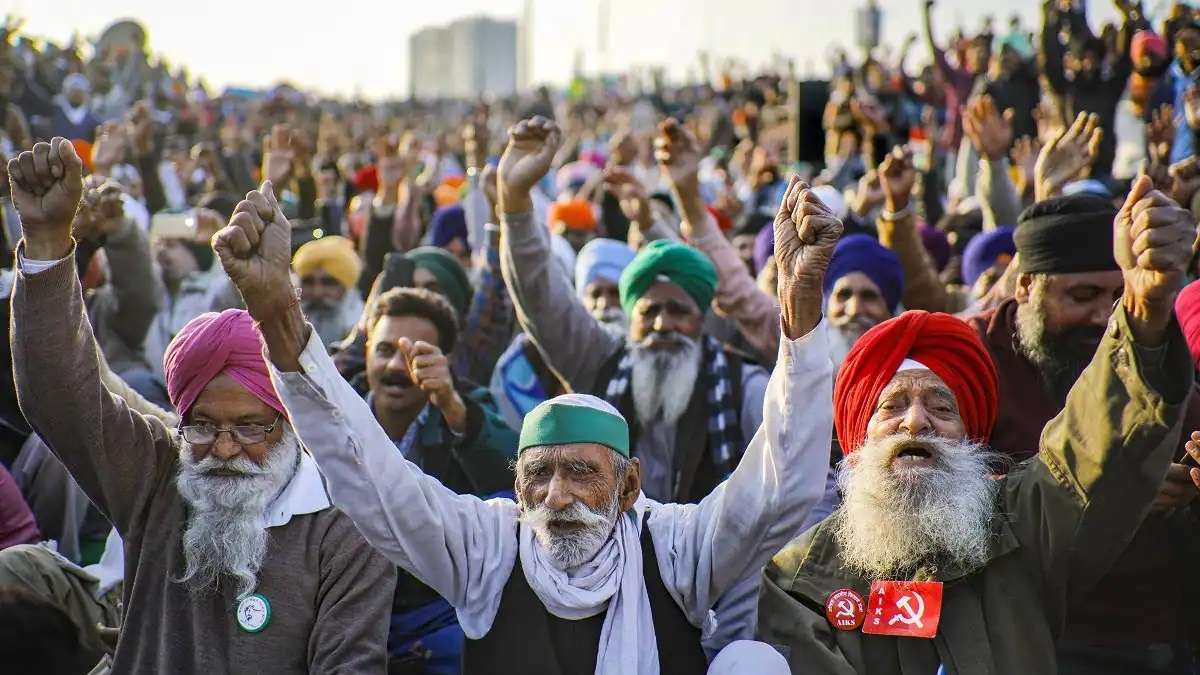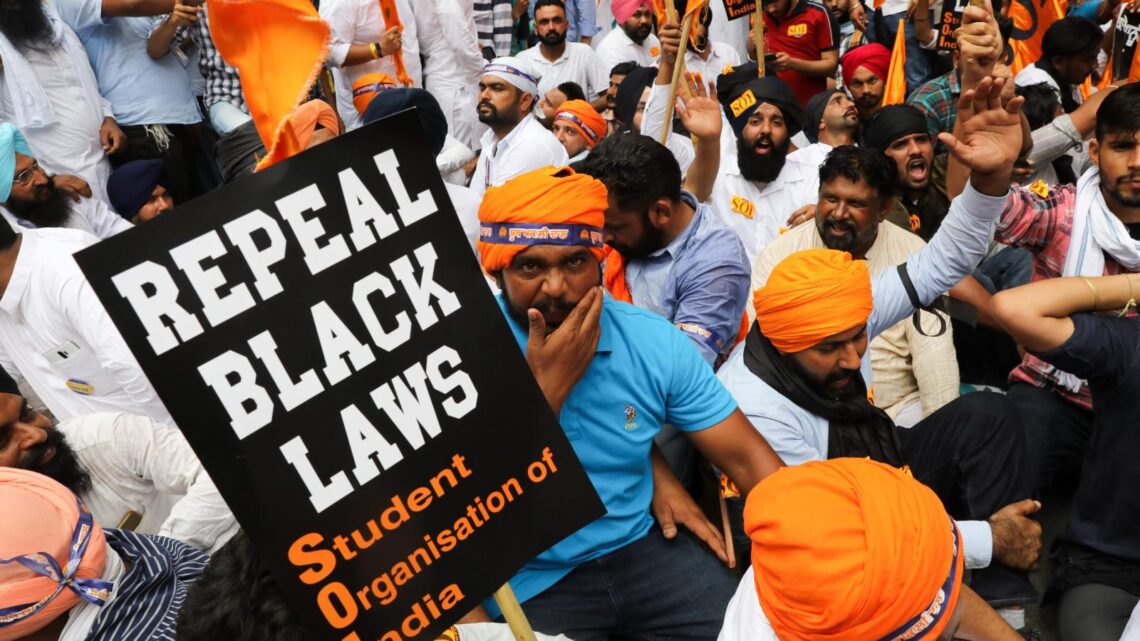The auspicious day of Gurupurab began with a highly-awaited announcement by the Prime Minister to repeal the new farm laws. The PM made a special address to the nation on the occasion with a big announcement spreading happiness in the camps of farmers across north India where tens of thousands of farmers have been protesting for more than one year now.
PM Modi said that the central government has decided to withdraw the three farm bills that caused the protests. The three bills were met with large criticism by the farmers. He also said that the laws were made to benefit the farmers, but the government failed to convince the farmers despite many efforts. The announcement marks a major U-turn, as the government has not taken any initiative to talk to farmers in recent months.

He further announced that in the next session of Parliament, the government will begin the process to repeal the laws. The PM appealed to the farmers protesting at the national capital’s border to return to their homes. The government has also taken important decisions to make some vital decisions for the agricultural sector.
The government will promote zero-budget farming. It will also make changes in the crop pattern through scientific considerations. Moreover, a committee shall be set up to make decisions on MSP. The government intends to make MSP more transparent and effective in the future.
In September 2020, the Narendra Modi government introduced and passed three farm laws through the parliament without discussion when the opposition made a walkout. This was met by staunch protests in the Indian states of Punjab and Haryana, among others. These States occupy nearly 3% of the country’s land but produce abundant quantities of Wheat and rice.

There were many rounds of discussions held with the farmers, but the government failed to convince them. The farmers continued to protest at the borders of Delhi and Haryana. The opposition openly supported the farmers, despite the farmers making it clear that they have no political agenda behind the protest.
The announcement comes at a crucial point when the states of Goa, Uttar Pradesh, Manipur, Uttarakhand, and Punjab have elections in the first half of 2022. Some political analysts were quick to judge it as a way to appease voters before the elections. This might be true, but this decision of the government seems to have more implications.
The performance of the BJP was not up to the mark in the previous elections and recent elections. One reason if the not entire reason behind the moderate performance of BJP was the farm laws and its resultant farmers’ protests.
Farmers form a big section of voters in the states of UP and Punjab, so their hostility towards BJP would have been visible in the election results. Moreover, the BJP government has been trying to implement some modern changes in the Agricultural sector so, ending this farmer’s protest will make way for new decisions.
It is important to note that there are several other factors like inflation, Covid-19 management, vaccination drive, economy, development, etc that shall be a major consideration in the upcoming elections. It implies that the withdrawal of farm laws might not make a staggering impact, but they will lessen the impact of anger caused by the bills.

Opposition parties welcomed the decision and targeted the government. The Congress party leader Rahul Gandhi called it “a win against indecision”. West Bengal Chief Minister, Mamata Banerjee, took to social media to praise farmers and congratulate them.
It is significant to note that this decision by the government will reduce one issue that would have gone against the BJP. So, overall, the political dynamics will change because the opposition will have to emphasize other issues against the BJP. Meanwhile, the BJP will have to convince the voters in a new manner now.
The BJP members said that the decision to withdraw farms has no link with elections because it was taken to end the farm protest. The aim to end this protest can be one reason because the farmers’ protest brought a lot of criticism to the government from India as well as from abroad. There were incidents of rape and murder and even alleged suicide reported from the protest site that raised questions on security. Recently, the case about the killing of a young man by a Nihang Sikh grabbed much attention.
The decision to withdraw the laws has a prime strategic and political importance because it is an indirect admission of the government’s haste and high-handedness. The farmers’ protest mobilized farmers and civil society in the states of Punjab (Sikh-majority) and parts of Uttar Pradesh. The BJP did not expect such staunch protests, and they have been trying their best to win back the trust of the Sikhs.
Attempts to address the sentiments of the Sikh Community:
There have been several meetings held among the BJP to address the Sikh community’s sentiments. It has increased the price of crops and budget and allowed for the reopening of the historic KartarPur corridor. A fresh probe has been made to punish the guilty of the 1984 anti-Sikh riots. The BJP has a clear idea of the discontent in the Sikh community towards itself due to the laws. History bears it out that the alienation of the Sikh community with the government in the past led to the separatist demands and later the blue star operation in the 1980s. Therefore, the BJP wants to gain the confidence of this community, which will also benefit in the upcoming polls.

What might have led to the repelling?
The Samyukta Kisan Morcha (SKM) is an umbrella, and 40 farmer unions have been protesting under the name. They had refused to take back their protest till the withdrawal of the laws, despite several appeals from the government.
Farmers went on to block the roadways to the national capital of Delhi, struggling through Harsh winters, hot summers, and deadly second waves of Covid-19. They kept on with the strike even though dozens of them died in cold, heat, and Covid-19.
The government agreed to engage and discuss with them at the beginning of the protest and even offered to keep a stay of 2 years on the bill. But, the farmers rejected this idea and continued with the wait-and-watch policy.
But, two big incidents took place in this 1 year that is a major cause behind the repeal.
Firstly, the son of a federal home minister of state allegedly drove his car on the protesting farmers in Lakhimpur Kheri of UP. This incident in early October gained much criticism, and he was arrested after denying the allegation. Eight people involving four farmers, and a journalist were killed. This incident forced the government to take a back foot.
Secondly, the angry farmers can be a big obstacle for BJP to win the elections of UP, Uttarakhand, Punjab, and other states.
What exactly does the farm law state?
The farmer laws at large loosen the rules regarding the sale, pricing, and storage of the farm produce. These laws relax the laws that have prevented the farmers from opening markets in the agricultural sector. A big point is that the farmers can deal directly with the private purchasers without any middlemen.
These private purchasers include agricultural businesses, supermarket chains, and online grocers. The farmers currently sell their produce in the government-controlled markets at assured prices or MSP. The government wants to make farming profitable for even small farmers, and new laws were made for it.

It is always said that “better late than never”. We don’t know how applicable this saying is for the decision of withdrawal of farm laws because many farmers have lost their lives in these protests. But, this decision shall turn into a big factor that shall change the political dynamics for the upcoming elections. Every political party shall try to use this matter to their benefit, and it will be important to see with whom shall the voter’s side this time.
Also Read: The ALLEGED riots in Tripura caused escalating violence in Maharashtra












